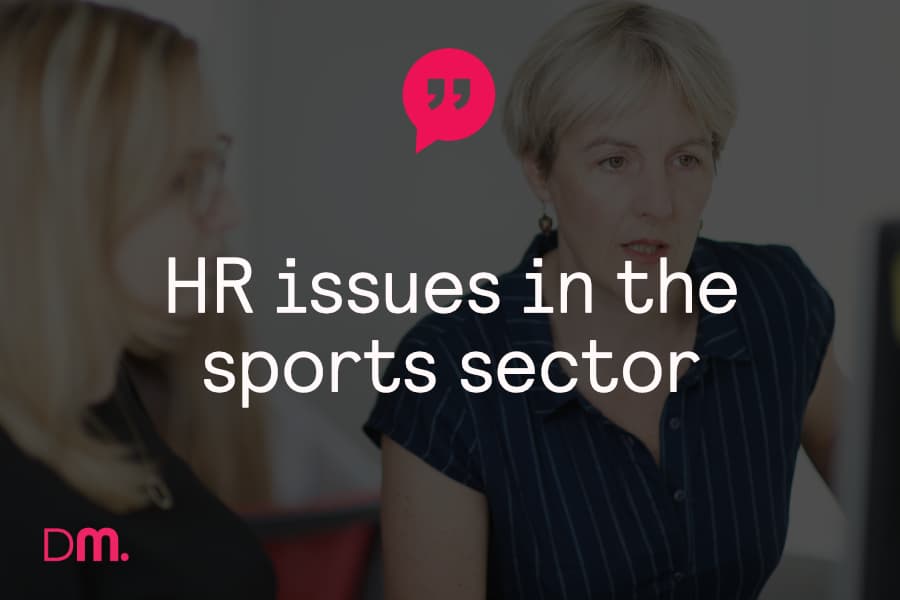Outlined in this article are key HR challenges the sports industry currently faces.
Millennials & Gen Z
Now more than ever, the sports industry is faced with an uphill battle of finding ways to entice millennials to actually participate in and attend events. The rise of technology has made it exponentially easier to view sporting events from the comfort of their own homes. Not to mention, professional sporting groups such as the NBA and NFL have also made it easier through mobile applications and their own TV stations (NFL Network, for example). It’s hard to say why millennials just don’t go out any more. Still, this age group will continue to challenge the sporting industry in years to come in terms of workforce planning and engagement, as well as in relation to sales and customer experience.
Technology adoption
One other challenge the sports industry faces is keeping up with the pace of technological advancements.
The future of HR is both digital and human as HR leaders focus on optimizing the combination of human and automated work. This is driving a new priority for HR: one which requires leaders and teams to develop a fluency in artificial intelligence while they re-imagine HR to be more personal, human and intuitive.
It’s the combination of AI and human intelligence that will transform work and workers as we know it.
For many companies the first pilots of artificial intelligence are in talent acquisition, as this is the area where companies see significant, measurable, and immediate results in reducing time to hire, increasing productivity for recruiters, and delivering an enhanced candidate experience that is seamless, simple, and intuitive.
The key learning is that the use of artificial intelligence provides benefits for the recruiters as well. Recruiters no longer need to spend hours to screen thousands of applicants, freeing them up to perform higher-value work such as sourcing, recruitment marketing, engaging with candidates, and hiring managers.
Skills gaps
Even with these challenges, the sports world will continue to thrive. While some teams might fail, others will find ways to make sure they stay in business.
If you had to list the most popular jobs in sports—outside of the players, coaches etc., roles such as social media coordinator, community manager or head of production would probably rank high. The war for tech talent in particular is seeing sports organisations competing with employers in other sectors for top talent. And while as an entertainment business at its core, coordinating and showcasing competitive gaming events will always yield the more “sexy” roles, like all industries, sports is crying out for essential company skillsets, with Human Resources (HR) overall being one of the most underrepresented.
Talent retention
Employee retention will remain one of sports biggest challenges going forward.
In practical terms, an HR personnel can ensure someone new is always coming in, with contracts already set up. But more importantly, it needs to maintain, motivate, and track the performance of its high value performers.
The high-pressure environment of the sport and recreation sector brings its own issues and stresses. With funding, contracts and futures often relying on results, the burden can be amplified.
Increasingly workers are searching for meaningful work, a workplace that aligns to their values and a supportive and healthy work culture.
That is why it is so vital for organisations across the sector to acknowledge the importance of mental wellbeing and aim to create a culture shift that removes the stigma around mental health.
Remote working
Whether there are teams with global rosters or a marketing agency with offices in Europea, Korea and China, there’s likely to be a heavy rate of personnel import, and a lot of HR work that needs to be done around this.
Local language training, Visas and other legislative hurdles present a mammoth task. Things like cultural dietary differences are a surprisingly high barrier to team integration. However these problems apply to any workforce; local language training, Visas and other legislative hurdles present a mammoth task, especially when employees are being shuffled to offices miles from the company’s central HR department.
Need assistance?
DavidsonMorris are established advisers to the sports sector. As employer solutions lawyers, we work with education providers and institutions to support with their full people requirements including immigration & employment legal advice and global mobility & human resource consultancy.
We understand the commercial and legal challenges facing employers in the sector, and work to support our clients in meeting their people management and planning needs while reducing legal risk exposure. Contact our sports sector specialists today.
Last updated: 2nd January 2020
Author
Founder and Managing Director Anne Morris is a fully qualified solicitor and trusted adviser to large corporates through to SMEs, providing strategic immigration and global mobility advice to support employers with UK operations to meet their workforce needs through corporate immigration.
She is a recognised by Legal 500 and Chambers as a legal expert and delivers Board-level advice on business migration and compliance risk management as well as overseeing the firm’s development of new client propositions and delivery of cost and time efficient processing of applications.
Anne is an active public speaker, immigration commentator, and immigration policy contributor and regularly hosts training sessions for employers and HR professionals
- Anne Morrishttps://www.davidsonmorris.com/author/anne/
- Anne Morrishttps://www.davidsonmorris.com/author/anne/
- Anne Morrishttps://www.davidsonmorris.com/author/anne/
- Anne Morrishttps://www.davidsonmorris.com/author/anne/

